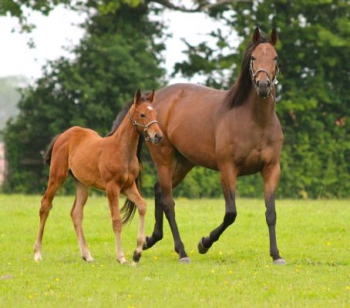EHN Members meet at European Parliament to press for access to research funds for horses

The EHN met Members of the European Parliament today to press for access to the new Horizon 2020 research funding programme.
A morning meeting was held with Vicky Ford (British MEP), a member of the Parliament’s Industry, Research and Energy Committee. Vicky Ford explained that Framework 2020 has not been signed off yet because of budget issues, but that nevertheless the first call for projects is provisionally planned for the end of this year. Research funding which benefits SME’s (small and medium sized enterprises) is to be prioritised, and this could be a positive point for possible equine funding.
Afterwards, during the Informal MEP Horse Group lunch meeting, Julie Girling MEP, explained how she and other members of the group had been active on behalf of the horse sector in trying to ensure that the thousands of amendments tabled in Parliament did not unintentionally exclude the horse sector from future research funding.
Stefan Johanson added, “This shows the value the EHN gives to the European horse sector in that we have already European Parliament members who understand horses and our issues, and are working on behalf of us all at the very centre of decision making.”
Kent Johansson MEP was also present. He is another key figure in the negotiations for Horizon 2020. He stressed the need to have co-financing capacity in the regions to be able to apply for funding and this is something the horse sector could work further on.
The European Commission, Directorate-General for Research was also represented, and had a positive message in how the horse can have an important role in rural development and agriculture, and therefore be included in research funding.
Other speakers included Josh Slater from the FEEVA, the European Equine Vets Association who outlined the need for further veterinary research explaining how it is currently held back by lack of research investment. Jan Vaarten, Director of the FVE (European Veterinary Federation) emphasised that authorisations for the marketing of veterinary medicinal products should be Europe wide instead of national. He also warned of the increasing occurrence of resistance against medicines to treat worming infestations. Pierre Lekeux, President of Hippolia, a foundation which regroups French scientists involved in equine research, highlighted the fact that, despite the availability of world-class scientists and infrastructure in Europe, equine research and innovation are hampered by the lack of EU funding, which is essential to attract private and local co-funding.
EHN Chairman, Stefan Johanson added, “The EHN intends to work together to ensure that at this crucial stage of the Horizon 2020 programme, the new legislation and its wording does not unintentionally or deliberately exclude the European horse sector from the possibility of this EU Research funding. With its 80 million or so euro budget it is one of our priorities to try to ensure that equine research is both recognised and eligible.
